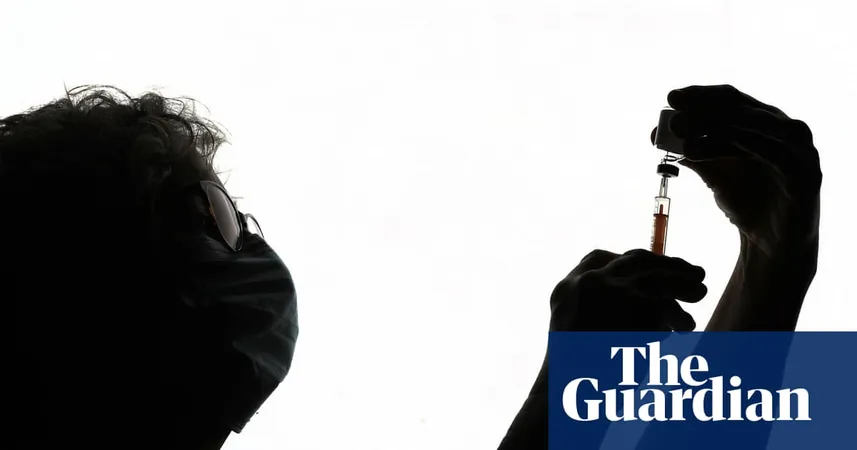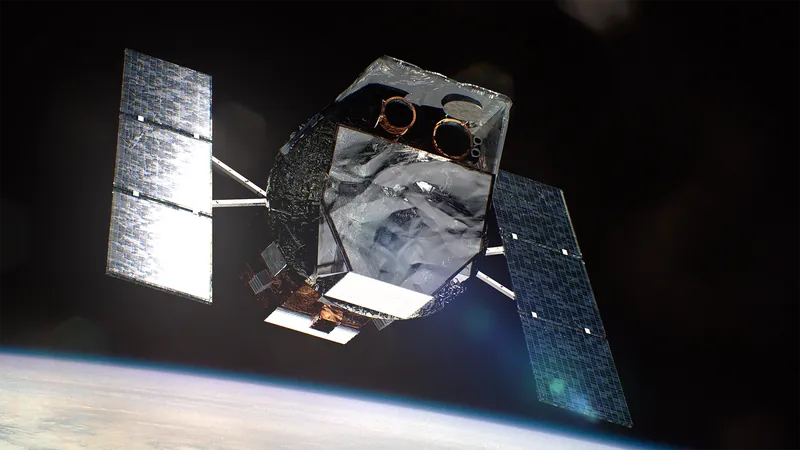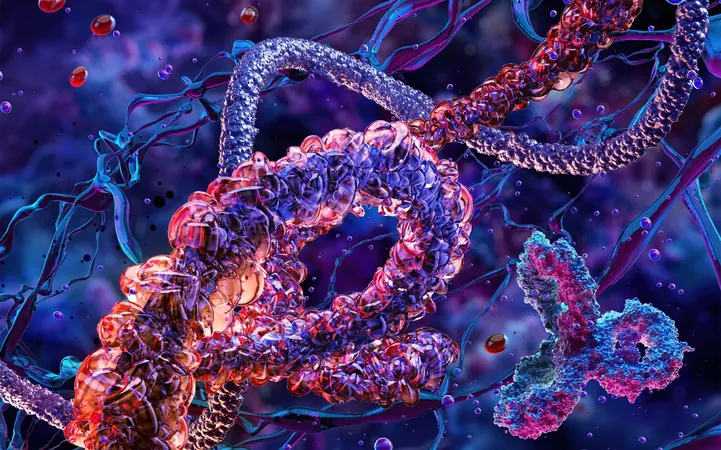
Game-Changing Cancer Vaccine Shows Potential to Prevent Recurrence of Deadly Cancers!
2025-08-11
Author: Noah
Revolutionary Vaccine Offers Hope against Pancreatic and Colorectal Cancer
A groundbreaking off-the-shelf vaccine is making waves in the fight against cancer, showing remarkable promise in preventing the return of both pancreatic and colorectal cancers. Researchers are buzzing about the potential implications of this vaccine—a development that could change the landscape of cancer treatment!
How It Works: Training Your Immune System
Cancer vaccines have gained traction in recent years, with programs like the NHS's Cancer Vaccine Launch Pad (CVLP) exploring various options. These vaccines work by training the immune system to detect cancerous cells so they can be swiftly eliminated, reducing the chances of recurrence after treatments like surgery.
A Breakthrough Beyond Personalization
While many existing cancer vaccines are tailored specifically to individual tumors, researchers are excited about a new, non-personalized vaccine that's produced at scale. If further trials confirm initial findings, this option could be a faster and more affordable alternative to existing treatments, significantly reducing toxicity for patients.
Promising Early Results
Professor Zev Wainberg, an oncologist from UCLA and co-author of the study, emphasized the hopeful findings: "Patients who mounted a strong immune response showed a much higher chance of long-term survival compared to historical expectations." This revelation could pave the way for a new standard in preventive cancer care.
Focus on Genetic Markers: Kras Mutations
The study revealed that a staggering 90% of pancreatic cancer patients and 50% of colorectal cancer patients carry mutations in the Kras gene, which drives aggressive cell proliferation. By targeting these specific mutations, the vaccine can equip T-cells to effectively hunt down and destroy altered cancer cells.
The Study Breakdown: A Limited but Hopeful Trial
In a notable study published in *Nature Medicine*, the vaccine known as ELI-002 2P was administered to 25 patients who had undergone surgery for either pancreatic or colorectal cancer. Results indicated a stark difference in outcomes: those with a fierce immune response experienced significantly longer survival rates and delays in cancer recurrence.
Expert Opinions: Cautious Optimism Ahead
Despite the promising early results, experts caution that this study is in its infancy, with only 25 participants and no control groups. Professor Siow Ming Lee from University College London highlighted the potential for ELI-002 2P to be combined with other immunotherapies, suggesting it could broaden treatment avenues for various forms of cancer, not just Kras-driven cases.
Looking to the Future: The Need for Further Research
As the excitement builds, Dr. Shivan Sivakumar from the University of Birmingham stresses the importance of rigorous randomized control trials to fully understand the vaccine's effectiveness over time. He warns that while initial excitement is warranted, the ultimate test will occur in clinical practice.
As the world watches, this innovative cancer vaccine could soon change the way we approach treatment and prevention, offering new hope to patients battling these aggressive cancers.









 Brasil (PT)
Brasil (PT)
 Canada (EN)
Canada (EN)
 Chile (ES)
Chile (ES)
 Česko (CS)
Česko (CS)
 대한민국 (KO)
대한민국 (KO)
 España (ES)
España (ES)
 France (FR)
France (FR)
 Hong Kong (EN)
Hong Kong (EN)
 Italia (IT)
Italia (IT)
 日本 (JA)
日本 (JA)
 Magyarország (HU)
Magyarország (HU)
 Norge (NO)
Norge (NO)
 Polska (PL)
Polska (PL)
 Schweiz (DE)
Schweiz (DE)
 Singapore (EN)
Singapore (EN)
 Sverige (SV)
Sverige (SV)
 Suomi (FI)
Suomi (FI)
 Türkiye (TR)
Türkiye (TR)
 الإمارات العربية المتحدة (AR)
الإمارات العربية المتحدة (AR)